It is like just yesterday we started this Indian Food Odyssey but here I am posting the recipe for day 11!This week surely did fly!!!Today, we are moving on to Jammu and Kashmir…
Jammu and Kashmir is mostly located in the Himalayan Region and shares the border with Himachal Pradesh and Punjab and shares international border with China.
This state is divided into three regions – Jammu , the Kashmir valley and Ladak]. It is intersting to note that Srinagar is the Summer capital and Jammu is the Winter capital.
Jammu attracts thousands of Hindu pilgrims to the various shrines present there.
‘Kashmir’-The very word brings in a picture that is painted in beautiful colors! The valley known as a paradise on earth is a popular tourist spot. It is admired for its rivers gurgling with sparkling water and its sleeping lakes. The flowering meadows speak for themselves. The snow capped mountains look bewitching.
Kashmir is also the home to a great variety of herbs and spices. The most precious of them being saffron. Though expensive it is a popular spice in many cuisines.
Ladak is popularly known as Little Tibet.
The cuisine :
The cuisine of Jammu and Kashmir varies in these three regions and all the dishes that come from these areas are rich and redolent with the flavor of spices that are grown in this land.
Kashmiri cooking developed through the ages as two great schools of culinary craftmenship – the Kashmiri Pandits cuisine and the Muslim cuisine. The main difference between these two are that the Hindus use Hing and curd [Asafoetida and yogurt] and the Muslims use onion and garlic.
Originally onion and garlic was never used in Kashmiri Pandit cooking .But since many of them acquired a taste for this, it was added to their dishes as well.
Here are some points of interest about this cusine….
It is also interesting to note that the Kashmiri Pandits,Brahmins, have been meat eaters for a long time! They prefer goat meat / mutton.
Curd is very vital in this cuisine is used in almost all the recipes that use meat,except for may be a few kebab recipes.
The Kashmiri Pandits cuisine evolved several centuries ago and in time the Mughal cuisine absorbed some delectable elements from the Kashmiri Pandits cuisine.
It is said that in the early part of this century, every Kashmiri Pandit home in the plains had a professional kashmiri cook and the salary was like 10 bucks a month with food , shelter and clothing provided by the family.So we can imagine how the food would have been! Each and every meal would have been a royal feast.
As the years passed by the ladies of the household slowly started acquiring the the training from these professional cooks and soon became proficient in the art of cooking elaborate meals.
Then years passed by and the people migrated and the culinary mastery started to fade slowly!
The food can be an family meal or a 36 course banquet called the Wazwan!When the number of dishes in a meal is more, it is the sign of lavish hospitality!
Kashmiri cuisine still remains in these plains largely is only popular in a few restaurants.The professional cooks nowadays do not make much money as the lavish hospitality is now on the decline and is now restricted to festivals and weddings.
In the olden days, the traditional Kashmiri Muslim banquet known as the Wazwan was a feast befitting a King!Waz here means ‘chef’ and Wan means a shop with its full array of meat and other delicacies. The number of courses in a meal would be 36 and the number of meat dishes can be anything between 15 to 30 dishes!
The meal itself was a sort of ceremony. The guests would be seated in groups of fours on the traditional cushion seating on the floor and share the meal from a large plate called ‘Trami’.A trami would consist of a large mound of rice and the first few dishes from the elaborate meal. So we can imagine how big the metal plate would be!Cud and chutney would be served in small earthen pots.
So after a few morsels of rice and meat, a few sips . spoons of curd would be taken to help digest the richness of the meal.
A large finger bowl/ wash basin would be taken around by the attendants for the guests to wash their hands after a meal since they would eat the meal in the Indian way,with their fingers.
Even today , such types of feasting takes place but only during festivals and weddings…
I am in no position to cook and present a wazwan so here today, I am presenting two very simple dishes from this state- a gravy and a vegetable side….
Behind the scenes:
This dal recipe is from the book – Kashmiri Cooking by Krishna Prasad Dar.This is one of the books that I got just to do this mega marathon on Regional cuisines! Will you believe if I told you that after Srivalli announced this Mega Marathon, I have bought books just to look out for recipes to post for this event?! Well, I can be like that since I love book esp. cookbooks. Will post a review on this book later,maybe after this marathon is over 🙂
The other recipe is from Anita’s blog. She has a lot of Kashmiri recipes and all of them are worth trying out!
Okay,coming to the experimenting part of these two dishes… The dal was prepared according to the book and it was a little different from what we usually make.
The radish side dish that I tried from Anita’s blog was really , really good. I love radish in this form and actually one can never guess it is a radish side dish! Now, how good is that!!
Let us move on to the first recipe – Dal Panchmel – a Medley of five lentils.
I used:
Source – Kashmiri Cooking by Krishna Prasad Dar.
Whole masoor dal, chana dal, moong dhal, green, split moong dal, yellow,toor dal – 1/4 cup each
Red chili powder- 1 teaspoon
Coriander powder- 1 teaspoon
Ginger- 1″ piece
Turmeric powder- a large pinch
Ghee- 2 teaspoons
Asafoetida powder- a pinch
Cumin seeds- 1 teaspoon
Cloves- 2
Salt to taste
Take all the dals in a bowl and soak them over night. The next day, wash the dal mixture and pressure cook it with ginger, adding enough water.
Once the pressure releases, open the cooker and simmer the contents.Add chili powder, turmeric powder, coriander powder and salt.Mix well.If the dal mixture is very dry, add more water and simmer for 5 minutes. Remove from heat.
In a small pan, heat ghee and add cumin, asafoetida and cloves. When the cumin crackles, pour over the dal .Mix well and serve with rice.
The next dish is a side that can be served with steamed rice and a main like the dal we just saw…
I used:
Recipe Source – A Mad Tea Party
Radish-1,large, grated on the coarser side of the grater
Green chili-2 slit
Kashmiri chili powder- 1/2 teaspoon
Cumin seeds- 1 teaspoon
Asafoetida powder- a large pinch
Oil- 2 teaspoons
Sat to taste
Heat oil in a pan and add the asafoetida powder.Then put in cumin and the green chilies. When the cumin crackles, add the chili powder and saute on low flame else it will burn.Be sure to switch on the exhaust fan / open the windows in the kitchen.
Once the raw smell of the chili powder goes off, add salt and the grated radish and mix well. Cook for just a couple of minutes. The Radish must be cooked yet have a crunch to it. Add lemon juice and switch off the flame. Mix well and serve.
Serve teh Stir fried radish chutney with rice .I am sure it will go well with chapathi / Roti as well…
Hope you enjoyed the Kashmiri recipes.Here are some of the Kashmiri recipes from my blog…
Kashmiri Kawa
Dum Aloo
Zarda Pulao | Modur Pulao
The Dal Panchmel is for the Cookbook Challenge of the month – April 2014, Week 2.
Also sending this Dal to A Day Through My Life where Avika is hosting MLLA -70, an event started by Susan , now carried on by Lisa
Bon Appetit…

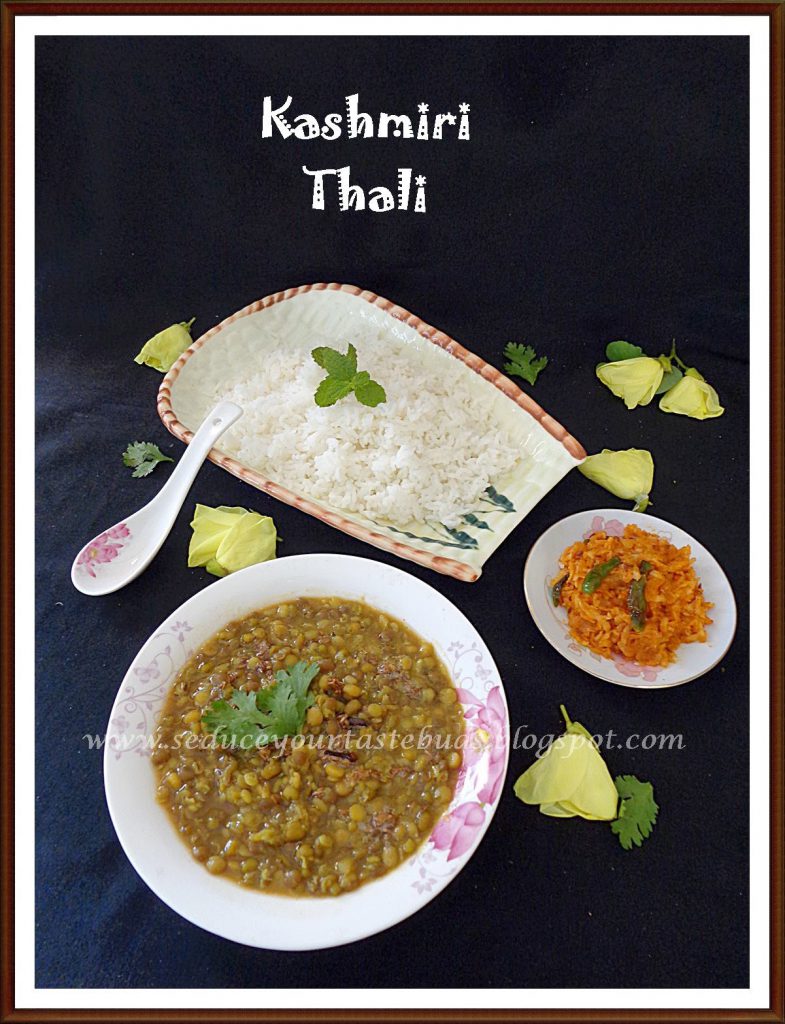
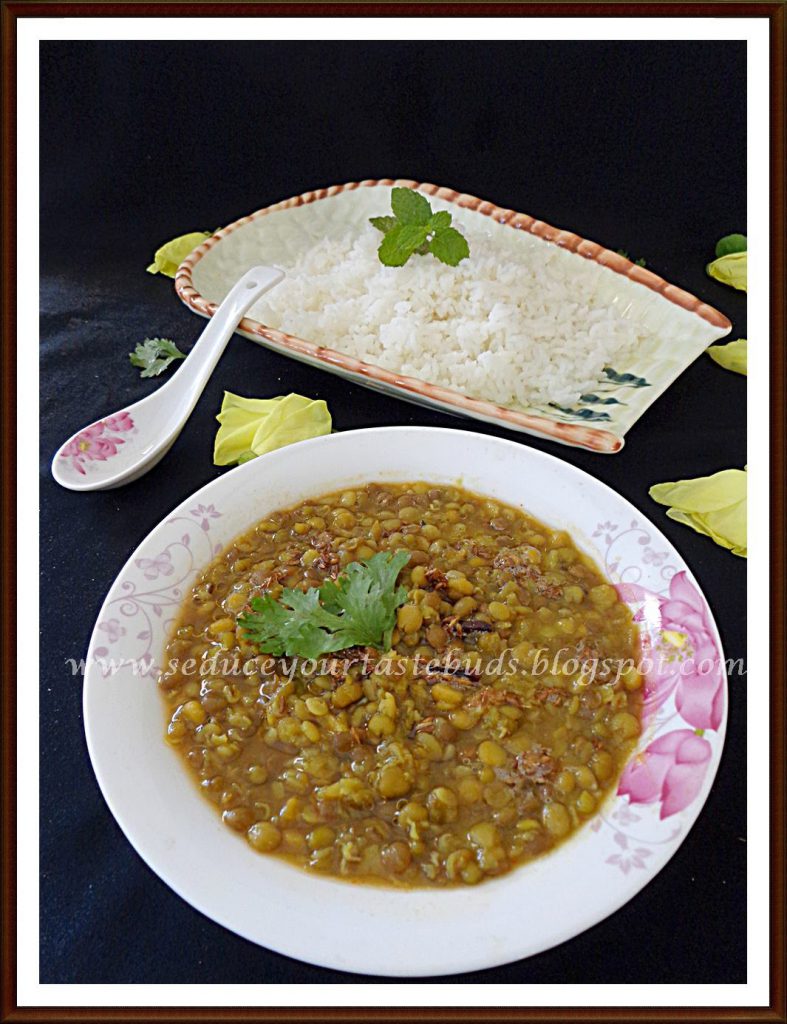
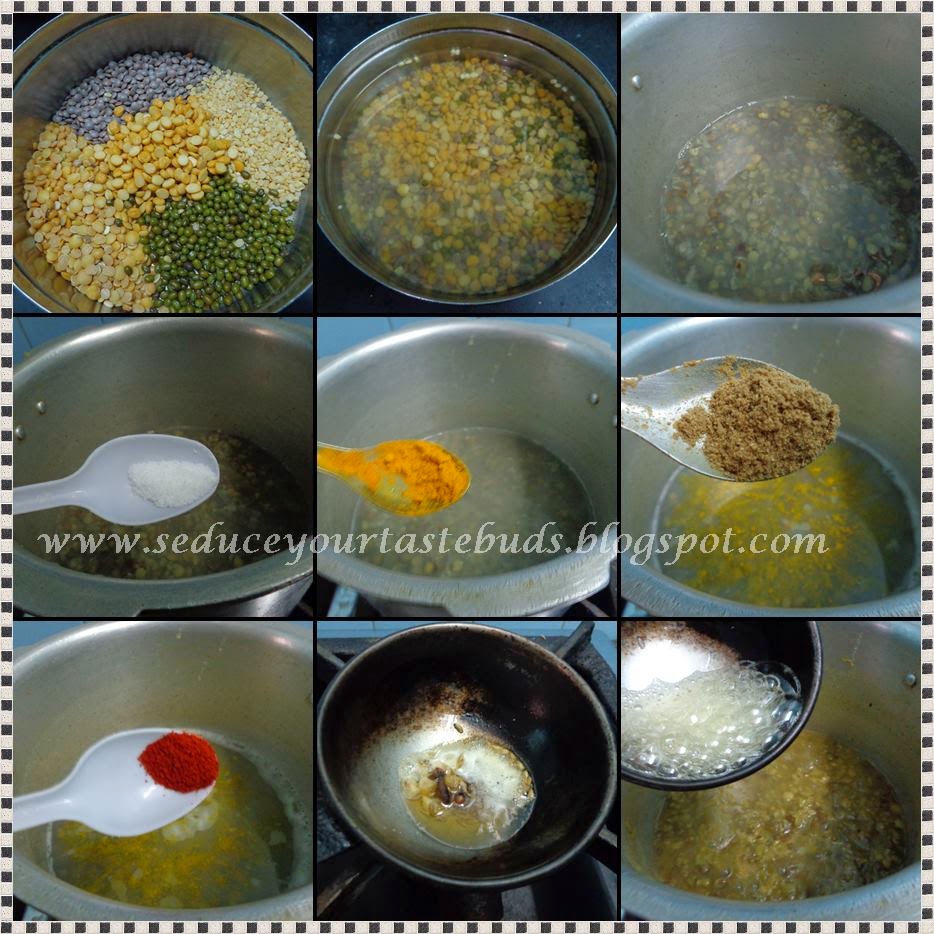
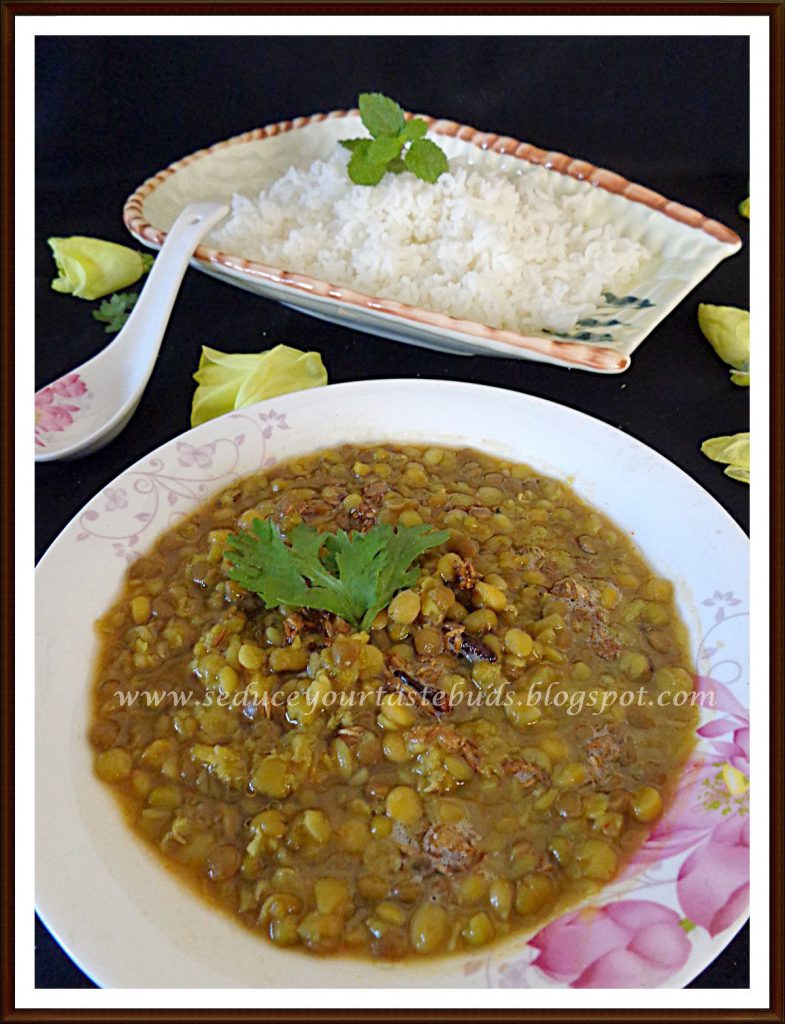
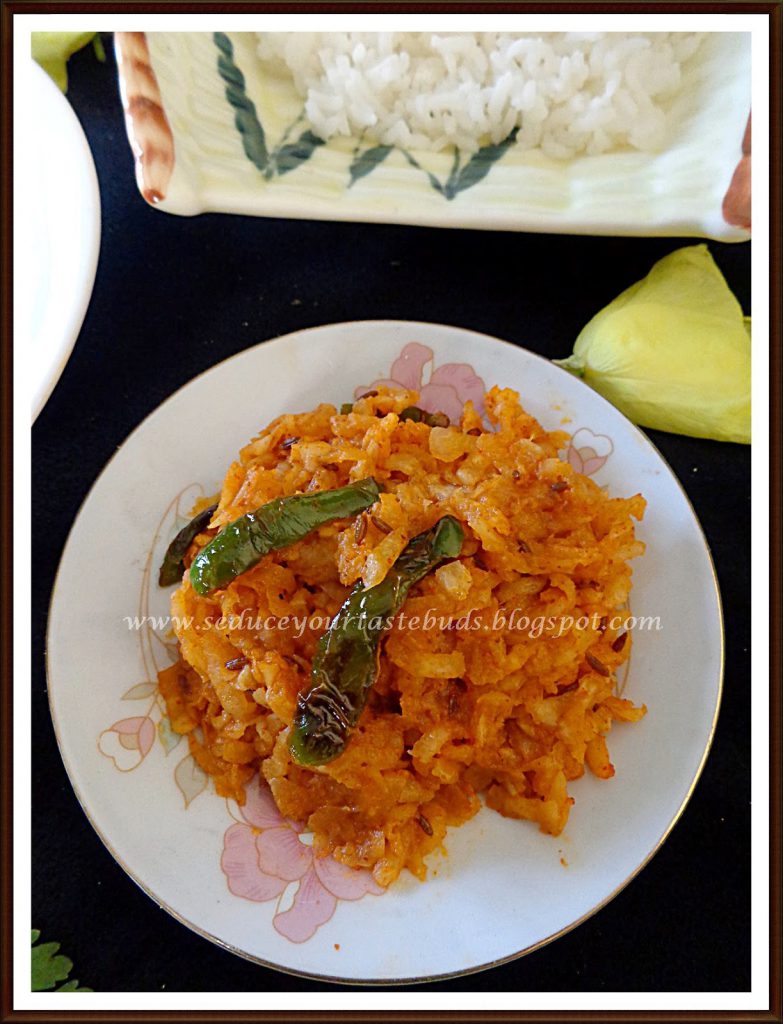
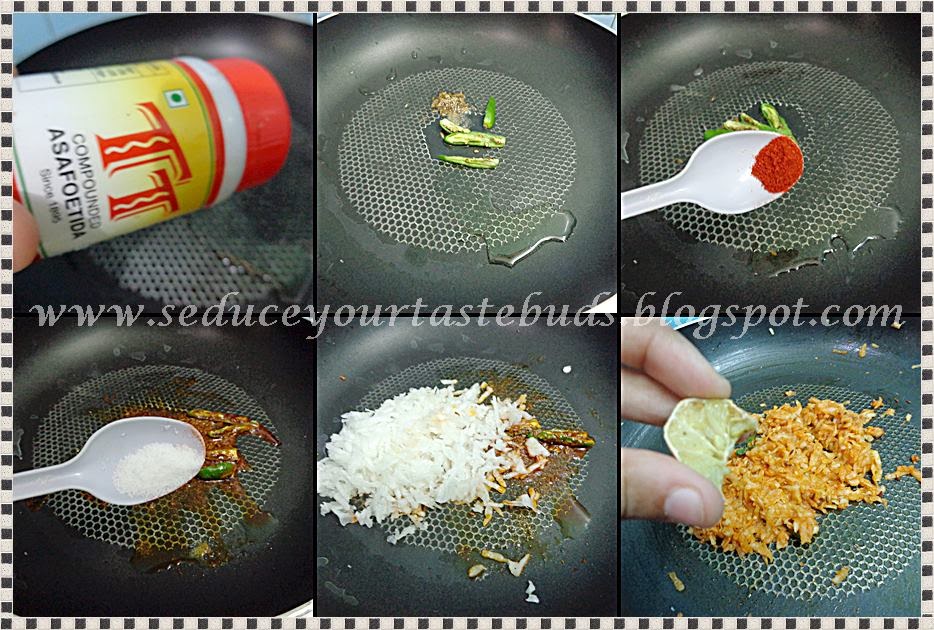
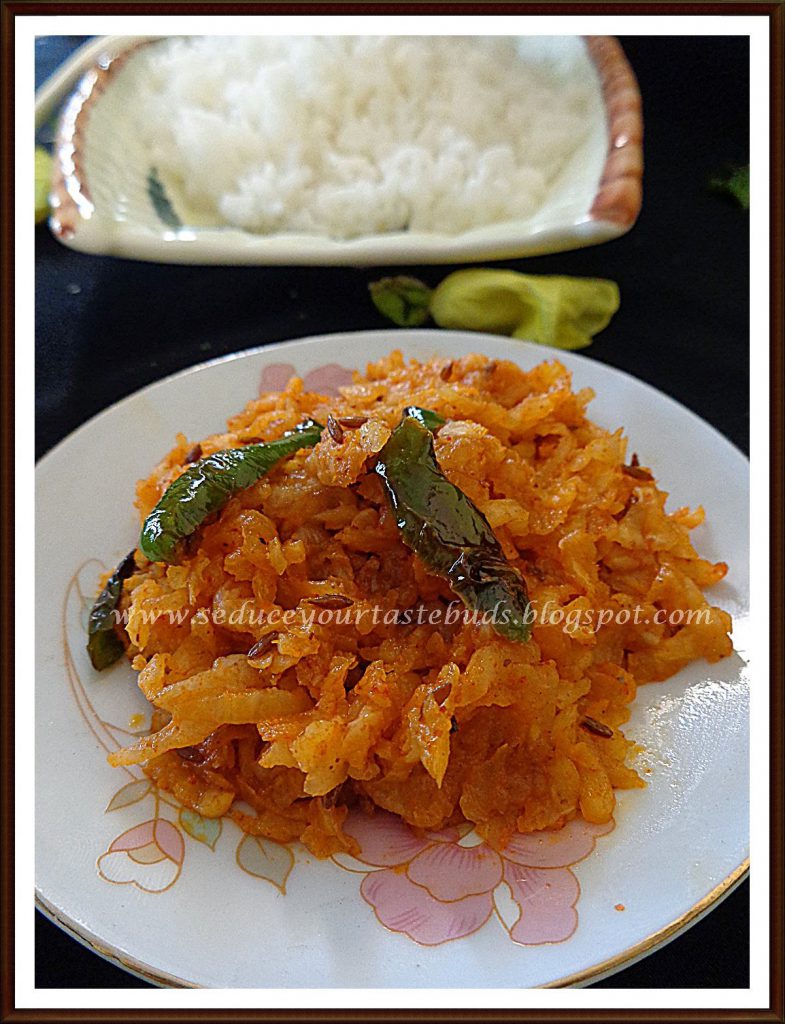
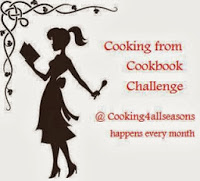

Lovely thali. I like the platter in which you served rice. Booking the post. I have a feeling I am going to like this radish side dish.
Wonderful presentation PJ, panchmel dal and mujj chatin looks prefect for a super satifying lunch.
PJ i love that radish chutney and have book marked…it looks delicious. The daal is a regular feature at home….I guess we all are the same..i love books too..and you have seen that:))
what a lovely combination, i loved the radish chutney it looks amazing and that "sup" as we call in marathi, shaped rich dish of yours…i want that 🙂
enjoyed reading about the Kashmir feasts.. love that dal and the moram looks adorable
nice dishes!! that serving platter is so beautiful…
lovely thali
I would love to try the radish dish but what kind of radish is used?
Wow what a comforting meal PJ..very nicely made!
The radish chutney looks delicious. Nice thali.
Comfort looking dhal,sounds inviting…
Awesome spread and loved the rice platter ..too cute
I can completely understand and empathise with buying cookbooks for online cooking events 🙂
Awesome looks so tempting and yummy dal
I use radish in sambar only. Whatever type of recipe I try, there are no takers at home. This side dish looks nice and I need to try this. The dhal also looks so delicious…
That is an very tempting dal preparation.
Panchmel dal is a very homey and comforting dal, PJ and I would love to try out the radish curry. Lovely spread.
Yummy platter PJ and lovely clicks too. Love that plate you put the rice in
what a great combo
Love your thali PJ. I prefer the radish dish . it sounds delicious.
I have always associated this dal with Rajasthan and had no idea that J&K people prepare it too. And that radish chutney is next on my list to try.
Kashmiri panchmel ki dal looks very tempting dear , Love the way you have presented , Radish chatin is just calling me 🙂
Looks like it turned out well! Enjoy!